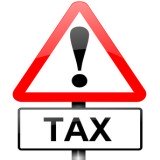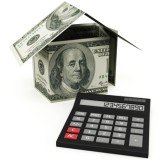How Depreciation of Rental Property Affect Your Taxes
Depreciation of rental property is often overlooked but it makes a big impact on your taxes. Learn how if affects your rental property tax... and capital gains tax.
RELATED: How to Calculate Depreciation of Rental Property
How Does Depreciation Affect Rental Property Tax?
Short answer: Depreciation lowers your rental property tax.
Landlords can claim rental property depreciation as tax deductions. This is a big deal since depreciation will be one of your largest tax deductions, which means it will play a big part in trimming your rental property tax.
To better understand the relationship between depreciation and rental property tax, just take a look at the tax formula below:
Rental Property Tax = (Rental Income - Rental Expense - Depreciation) x Tax Rate
The IRS only allows you to claim depreciation as a tax deduction for investment properties (e.g. rental properties). Home owner cannot claim tax deductions for their personal residences (unless it meets the definition of a home office).
In case you didn't claim depreciation tax deductions for your past tax filings, no worries you're still allowed to include up to 3 years worth of depreciation in the next one.
Does Depreciation Affect Capital Gains Tax Too?
Short answer: Yes - Depreciation of rental property raises your capital gains tax
When you sell a rental property, you're required to pay capital gains tax on the profits. See for the formula for capital gains tax below:
Capital Gains Tax = (Capital Gains x Tax Rate) + (Depreciation x 25%)
Rental property depreciation increases your capital gains tax in 2 ways:
- It increases the your capital gains (taxable profit) - Since your profits have increased, you will end up more tax overall - For more details, See our guide on selling rental property.
- Depreciation recapture - This is the part that in red above. Basically you're required to pay back 25% of all depreciation that you have claimed so far.
If you're interested in learning more about depreciation, you can look up "Unrecaptured section 1250 gain" on the IRS website.



